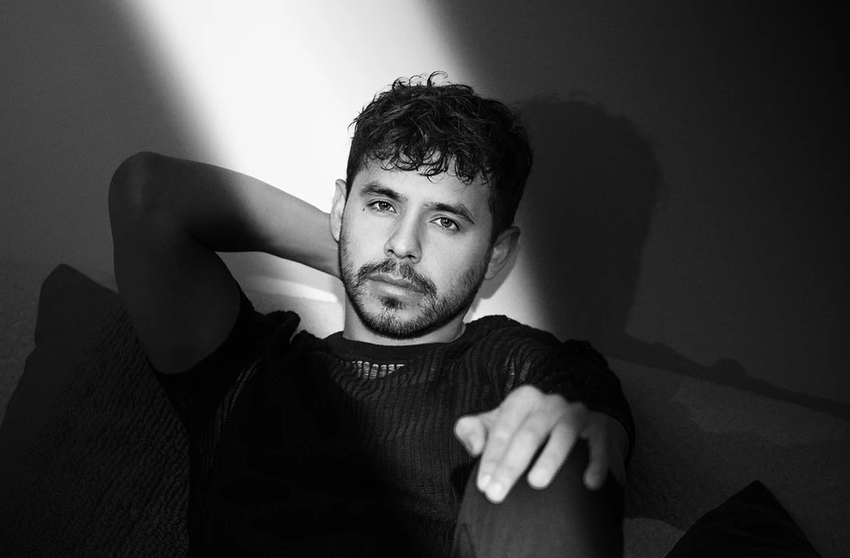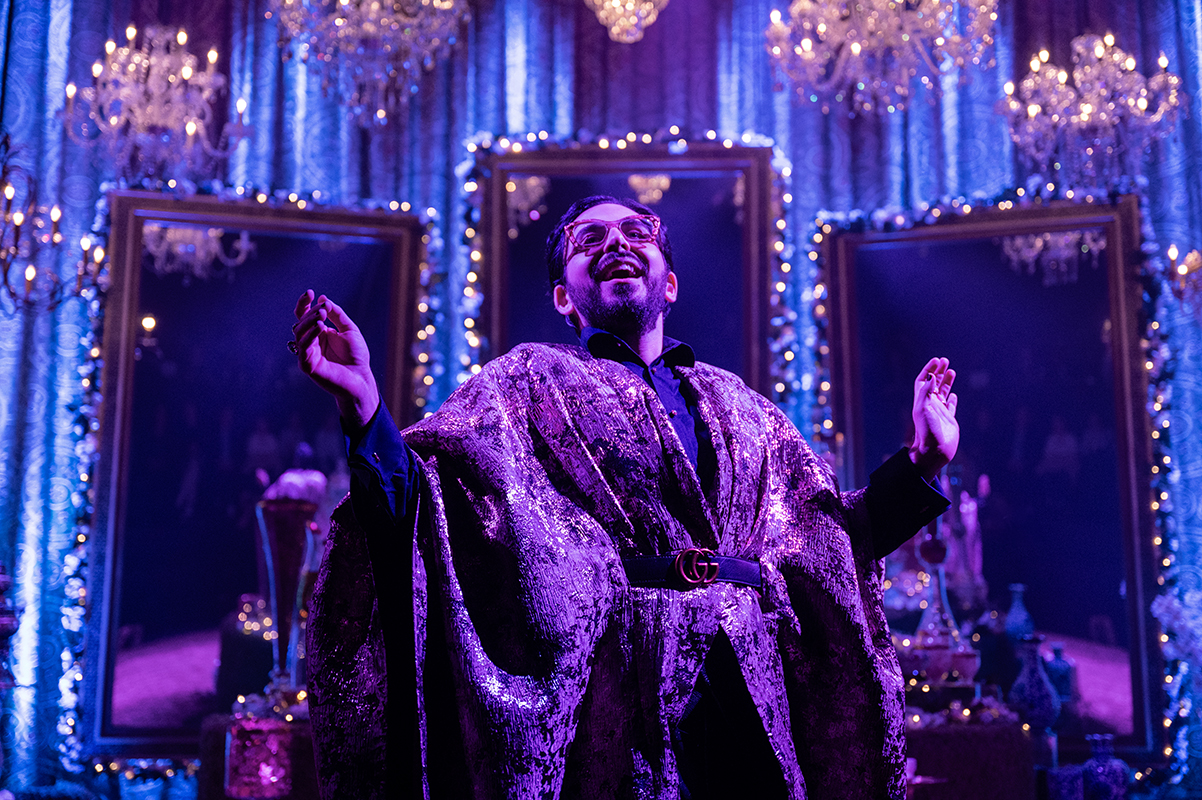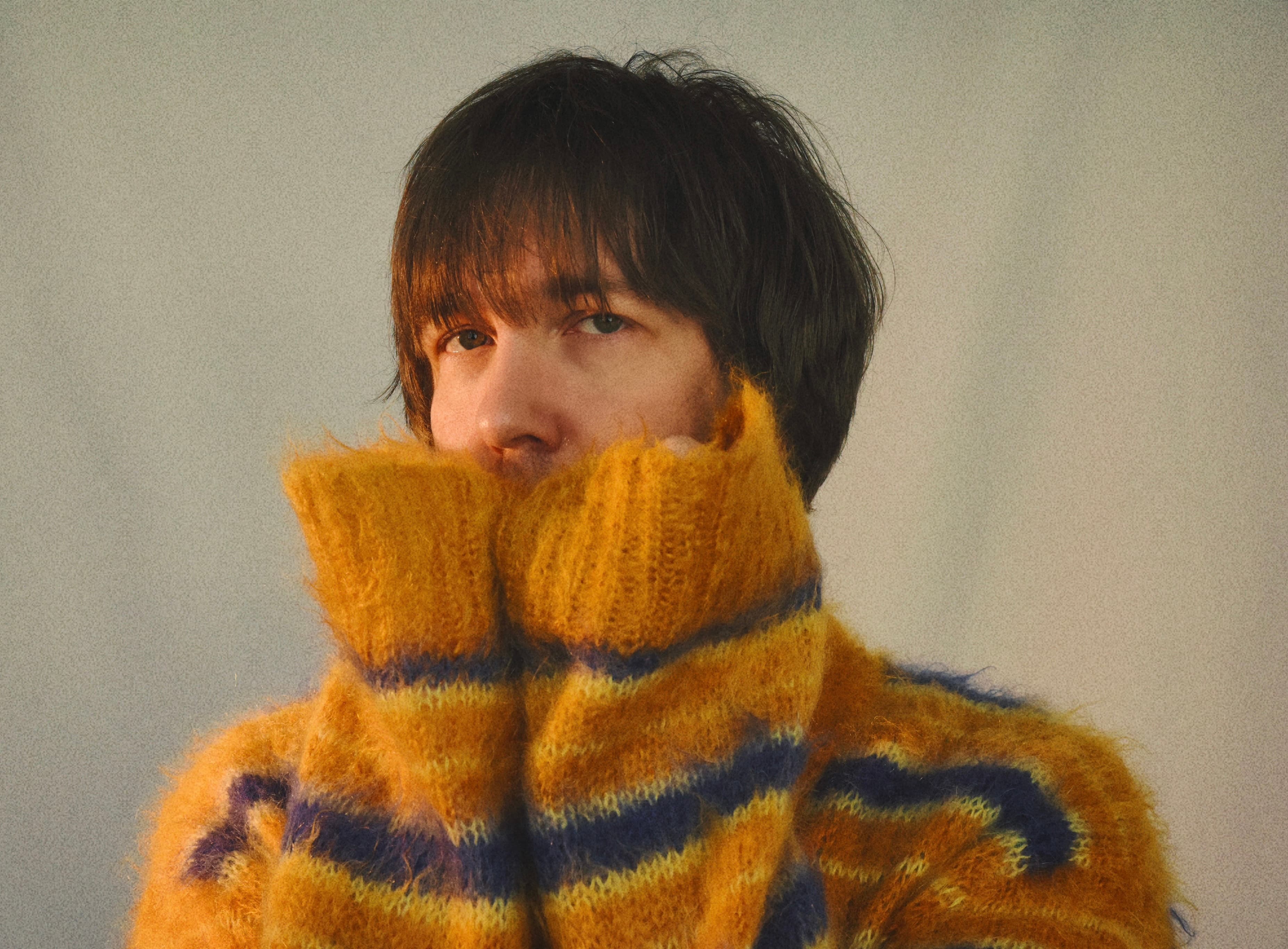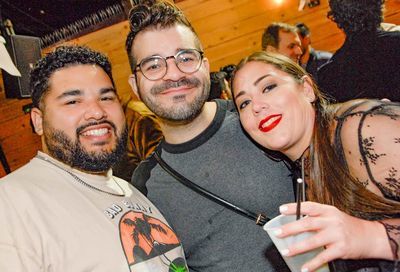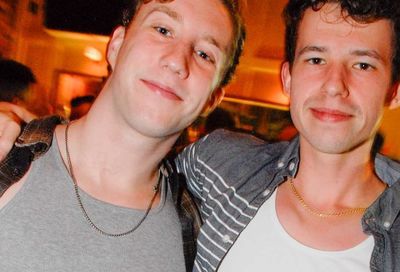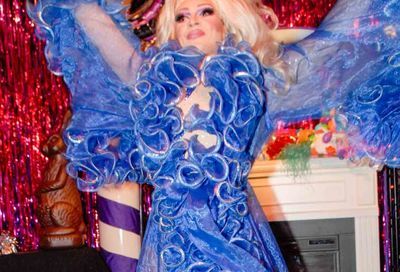A Touch of Gold
Why gay singer Ari Gold takes pride in being out in the pop world
One of the biggest thrills of Ari Gold’s life was the day he met Madonna.
“Actually, I exchanged words with her,” recalls Gold, whose own pop stardom is on the rise. “I don’t think that constitutes as meeting her. Nobody said, ‘Madonna, this is Ari.’ It was backstage at the Rosie O’Donnell Show. I told her that I liked her boots and she said ‘Thank you.'”
Gold, who was raised an Orthodox Jew, says it was the pop superstar who helped him “realize there was a world outside of the Yeshiva [Jewish Orthodox school].” To that end, he dedicated a song to Madonna on his new album, Space Under Sun. The name of the song? “Fan-Tastic.”
“I’m a fan first,” says Gold. “Before anything else, I’m a fan of music. You have to be. Why would you want to make music if you weren’t a fan of music?”
Gold, 27, will headline at this weekend’s Capital Pride Festival, alongside Melissa Ferrick, Simone Denny and Sophie B. Hawkins. His sweet, buoyant tenor voice coupled with his boy-band dance-driven musical stylings have helped get Space Under Sun noticed by more than a few pop critics, gay and straight. And his unapologetic use of the male pronoun in his love songs bears forth his resolve to make it in an industry where it’s not always easy — or a good career move — to be out.
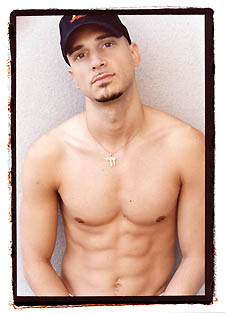 |
“Ultimately I think nobody’s really given an out gay male artist the chance,” says Gold. “I personally think that the new generation of teenage girls have their gay best friends. And I do think that they can fantasize about gay artist. If they can fantasize about Tom Cruise when he’s married to Nicole Kidman, then they could fantasize about gay guys about possibly being with them.
“There are some out gay artists who want to sort of push aside their sexuality,” he continues, “and that makes them more palatable to straight people. You’ve got to deal with the fact that I do actually like to have sex with men. I’m not just some funny, campy entertainer for straight people to laugh at.”
The NYU and Yale-educated Gold has been doing the national pride circuit in part to promote his new album — which is available for downloading at Amazon.com and at the iTunes Music Store — and in part to celebrate his connection with his gay fans.
“Obviously it’s important to be proud of who we are the other 363 days of the year,” he says, “but I think the good thing about gay pride is that it’s kind of a day where you can feel like you’re in the majority and that you are completely accepted for who you are. For one day you walk on the street and everybody around you is gay. And it’s important once in a while to feel that sort of camaraderie with your own people.”
METRO WEEKLY: Let’s start with your memories about growing up.
ARI GOLD: I grew up in the Bronx. And I also grew up [Jewish] Orthodox. We were sort of modern Orthodox — I didn’t have peyos [side curls], but I wore a yarmulke, kept kosher, observed Shabbat. What makes my childhood unique was that I also was in show business. I was being taken out of school to do commercials and stuff. Most of the other Orthodox kids were not in show business.
MW: Was that of your parents’ doing?
GOLD: Well, I sang at my brother’s Bar Mitzvah when I was five-years-old. After that I was asked to sing in a Jewish children’s song festival and then was asked to be on this children’s record called Pot Belly Bear. After that I got an agent and I started working all the time. I did over four hundred jingles on television. I did like [sings] “The heartbeat of America, that’s today’s Chevrolet.” “A is for apple, J is for jacks, cinnamon crunchy Apple Jacks.” “I don’t wanna grow up, I’m a Toys-R-Us kid.” [Laughs.] The list goes on.
MW: Impressive. So your career path was pretty much decided upon at an early age.
GOLD: I had this dream to sing pop music and to write music since I was at least twelve years old. I made my first demo when I was twelve.
MW: And the parents were good with this? They wanted this for you?
GOLD: The parents wanted this. My dad was an assistant principal, my mom was an education evaluator in the public school system for the board of education. But I think they always had a secret fascination with show business. I call my parents “Show Jews.” They were very excited by all of it.
MW: Was it tough, all that work at a young age?
GOLD: There were definitely a lot of negatives, but I have no regrets. It was a great experience, I had a lot of fun doing it, and it was really good training for what I do now. But it was a huge sacrifice. I was taken out of school all the time. I was constantly behind in my schoolwork. The other kids were maybe a little jealous or resentful. And even though I was doing all those jingles, I was also auditioning for different television shows and all kinds of stuff. The audition process is harsh for an adult, but as a child to be judged so harshly can be really rough on the psyche.
MW: Was there a defining moment in your life when you realized you were gay?
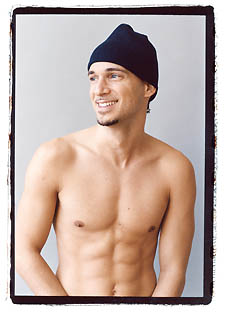 |
GOLD: I don’t think there was a defining moment for me. It was a process. I’d known I was gay from a very early age, and I told my first friend in high school when I was sixteen. That was very dramatic. I had tried keeping it in as a secret, I hadn’t told anyone, and there I was, just bawling for hours. I told my girlfriend when I was seventeen. Soon after that we found out that her father was gay.
MW: How did this go over with your Yeshiva contemporaries?
GOLD: I was always hanging out with the more liberal artsy kids in Yeshiva. We would challenge the Rabbis when they’d say things that were homophobic.
MW: How did the folks handle it?
GOLD: The initial reaction was actually really positive. I wrote my parents an eighteen page, college-ruled coming out letter. Gave them each a copy and then sat there and read it to them. They were proud of me that I told them. It was a process after that. The reality sank in and it took them a while to get used to the idea.
MW: How did you reconcile your religious upbringing and your sexuality? After all, the Jewish Orthodox viewpoint toward homosexuality isn’t all that different from that of the Christian Fundamentalist.
GOLD: Some of that is changing. I know the Orthodox community has realized that they have to at least talk about this and address it because they’re losing people in the community. And that’s not supposed to be the goal.
As far as how I feel now, I’m not observant. I still practice a lot of stuff, still enjoy a lot of the rituals and traditions. But I don’t practice Judaism in that strict “you have to do everything or you’re not a good person” sort of way.
MW: Do you think a person can be gay and still embrace their religious beliefs regardless of whether the religions accept us back?
GOLD: I think it’s possible. Basically the law against homosexuality in the Jewish religion is equivalent to the laws of keeping kosher. And the Jewish community does not tell people who don’t keep kosher not to come to the synagogue or not to participate. Nobody, when it comes down to it, is perfect. And nobody follows everything a hundred percent. I don’t even like to talk about this because just saying nobody’s perfect implies that I think that to be homosexual is to be less than perfect. And I don’t think that is true.
But it’s not my place to take the choice away from somebody who wants to stay an observant Orthodox Jew and to also be gay. If they choose to be both those things, then they can find a way to be both those things. I have found my own way of being a very strongly identified Jewish person and to be gay. I don’t see those two things to be contradictory.
MW: You’re somewhat of a maverick in the music industry as someone who is actually starting his career as an out gay artist and is making music geared toward the community.
GOLD: I feel really good about what I’m doing because everything that I’ve been doing is of my own choosing. I run my own record label, and I put my album out myself. My first priority with this [new] record was to make a record for gay people. Because I feel there’s lots of gay people who love pop music, love R&B, but they don’t have anything that speaks directly to them. I didn’t have that when I was growing up and I wish I did. There’s a real hole, a space left open. And I wanted to be one person who fills that space.
But do I think that my music is universal? Yes, I do. Do I think that anybody can appreciate what I’m singing and writing about? Yes, I do. Do I want to reach as large as an audience as possible? Yes, I do. But my first priority was to make an album that gay people can really listen to and say, “Oh, he’s talking about me.”
It’s a no-brainer for me because we live in a time when celebrity and fame and money that seems to take precedence over everything. But at the end of the day I have to sing and write about what’s real and true to me.
MW: Still, there’s no denying you’re taking the harder road.
GOLD: Easy is not necessarily the most meaningful or rewarding. And you know what? The truth is the music business sucks. Look at the artists who sell their souls basically to be rich and famous — they don’t seem to be any happier or doing any better than, say, someone like myself. I’m really happy with what I’m doing. The fan mail I get from gay people saying how much my album meant to them is incredibly rewarding.
MW: Do you feel successful?
GOLD: Yes I do. I do feel successful.
MW: Are you making a decent living? he said like a Jewish mother.
GOLD: [Laughs.] It’s very good. I’m not complaining. I’m living my dream. And it’s not exactly how I thought it would be, but you kind of have to deal with the difference between your lived, everyday life and the expectations you had when you were twelve and thought you knew what it was like to be a star. But I do feel like a star and I feel very successful with what I’m doing because I’m living my dream, I’m doing it without compromise, and I’m making music and performing. At the end of the day that’s what I want to do.
MW: How do you feel about your status as a sex object?
GOLD: Growing up, I was often told that I couldn’t be on camera because I was too ethnic-looking, that I looked too Jewish. So for me it’s kind of a sweet revenge to be considered a sex object. Jews don’t have reputations necessarily of being sexy rock stars. I’m trying to change all that. [Laughs.] So I feel fine with it. I think that a lot of times we as gay men are left to eroticize straight people because, once again, there aren’t that many sexy pop stars out there who are gay. So I think it’s important for us to eroticize someone that actually is one of our own. At least in a fantasy at the end of the night, I could be theirs.
Ari Gold is scheduled to perform this Sunday, June 13, at approximately 5:30 p.m. at the Capital Pride Street Festival Mainstage located on Pennsylvania Avenue at 3rd Street NW. To read interviews with the other national artists headlining at the event and for more information about the festival, pick up a copy of the 2004 Pride Guide, available free wherever Metro Weekly is distributed. For more information about Ari Gold, visit www.arigold.com.
Support Metro Weekly’s Journalism
These are challenging times for news organizations. And yet it’s crucial we stay active and provide vital resources and information to both our local readers and the world. So won’t you please take a moment and consider supporting Metro Weekly with a membership? For as little as $5 a month, you can help ensure Metro Weekly magazine and MetroWeekly.com remain free, viable resources as we provide the best, most diverse, culturally-resonant LGBTQ coverage in both the D.C. region and around the world. Memberships come with exclusive perks and discounts, your own personal digital delivery of each week’s magazine (and an archive), access to our Member's Lounge when it launches this fall, and exclusive members-only items like Metro Weekly Membership Mugs and Tote Bags! Check out all our membership levels here and please join us today!




